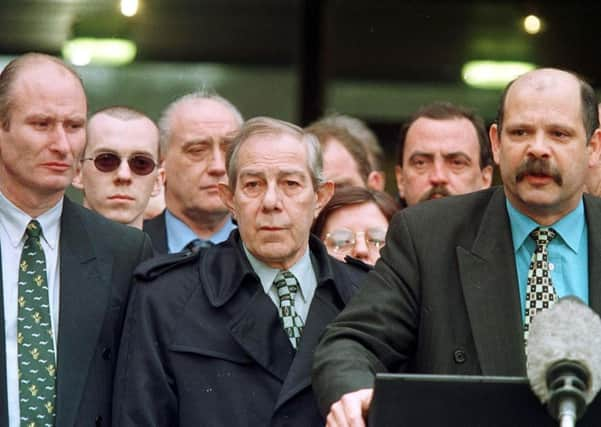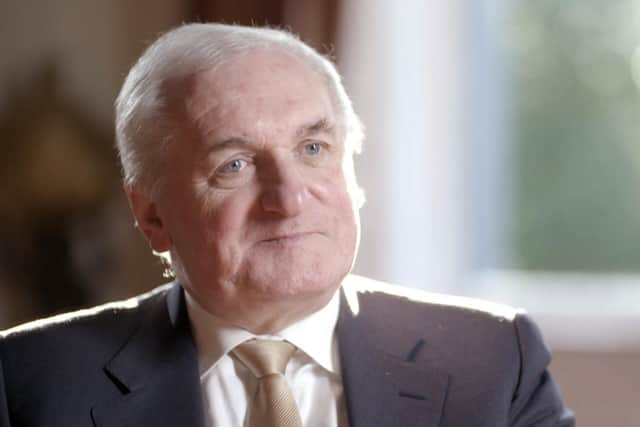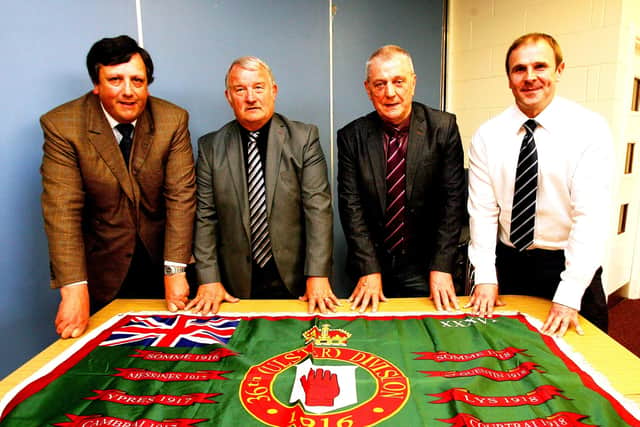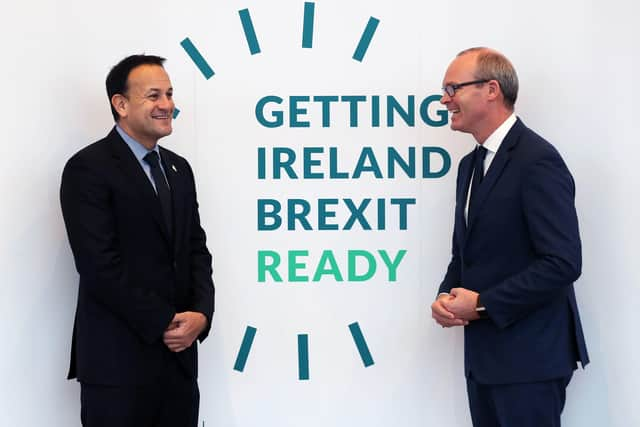David Campbell: Dublin has undone 25 years of useful dialogue with loyalism


Central to unionism reaching agreement in the Talks and the subsequent implementation period leading to devolution was the constructive approach taken by the Irish government, in particular the leadership shown by Bertie Ahern.
Even as his own mother was dying, he remained focused on dialogue with unionists and loyalists, reassuring us that he wanted a new relationship with Northern Ireland based on cooperation and mutual respect rather than aggression and hostility.
Advertisement
Hide AdAdvertisement
Hide AdTwenty three years on that constructive approach has been replaced with overt hostility, threats, and renewed aggressive nationalism from Irish governments and ministers who have chosen to set aside the Belfast and St Andrew’s Agreements in order to impose a UK–EU protocol for Northern Ireland that weakens the United Kingdom and removes the key requirement for cross-community consensus that was the secret of the Belfast Agreement’s acceptance by both communities in Northern Ireland.


Loyalism has been vocal in its opposition to the protocol and has withdrawn support for the agreement until the protocol is amended to bring it back in line with the agreement’s core guarantees.
Our opposition will however be peaceful, democratic, and consistent with the sound leadership shown by Arlene Foster, our first minister.
This is in stark contrast to the Irish government’s negotiating position which used the threat of violence – even a resumed bombing campaign on the border – to mislead the European Union.
Advertisement
Hide AdAdvertisement
Hide AdCan you imagine the righteous outrage there would be if loyalism had threatened a resumption of violence.


We would be condemned across the world yet the Irish government is permitted to use threats as a negotiating tool!
The insult they have inflicted on the victims of bombings is unforgiveable.
To add insult to injury is the false claim that there is no viable alternative to the protocol.
What nonsense.


Advertisement
Hide AdAdvertisement
Hide AdFirstly, the Irish Republic conducts up to 80% of its trade in or through the rest of the British Isles.
It is a small, peripheral part of a greatly diminished European Union.
Secondly, modern technology allows the real-time tracking of shipments and deliveries across the globe.
If you order any delivery from flowers to motor vehicles you can track the status of that delivery online and even be given a guaranteed delivery date and time.
Advertisement
Hide AdAdvertisement
Hide AdThe logic of this means that the transit of any goods can be remotely monitored and randomly inspected at any point.
Why then can goods not flow freely, or unfettered, within the United Kingdom if they are pre-registered and subject to GPS monitoring.
Why can goods bound from anywhere in the UK to the Republic of Ireland, and vice versa, not also be pre-registered and monitored.
If goods are travelling from the UK to the European Union mainland they can be inspected at the ports of entry on the EU mainland eg Calais or Rotterdam etc.
Advertisement
Hide AdAdvertisement
Hide AdAnd finally, if goods travel from the Republic of Ireland, through the UK to the EU mainland they can be pre-registered, sealed and despatched without interference.
This removes the need for either a hard border on the island of Ireland or between Northern Ireland and the rest of our own country and it restores the rights and guarantees of the Belfast Agreement.
I have failed to understand why Northern Ireland has been treated so differently and so shabbily.
Gibraltar for example, which also has a contentious land border with the EU has a Protocol which has not proved contentious.
Advertisement
Hide AdAdvertisement
Hide AdThe Gibraltar authorities were part of the negotiating team with the EU.
The result of their negotiation was put to the Gibraltar legislature for its approval, and Gibraltars’ representatives sit on the Standing Committees with Spain and the EU to monitor its performance.
By contrast, the Northern Ireland Executive was not involved in the negotiation of the NI Protocol.
The protocol was not put to the NI Assembly, or to the public here, for consultation or approval, and where are the NI representatives on the Standing Committees?
Advertisement
Hide AdAdvertisement
Hide AdFurther, loyalist and unionist groups and representatives are on record as asking for meetings with the EU negotiators to ensure the unionist position was understood.
Meetings were repeatedly declined, and submissions on possible solutions were ignored.
It is not difficult to conclude therefore that the Irish government viewed these negotiations as a means to re-ignite aggressive nationalism and punish unionism and the UK for supporting Brexit.
In so doing they have undone twenty-five years of constructive dialogue and cooperation and have shown up their ‘shared island’ agenda to be a disingenuous scam.
Advertisement
Hide AdAdvertisement
Hide AdLooking to the future I have absolutely no doubt that common sense will prevail and the protocol will change.
I am less sanguine about the possibility of the Irish government restoring constructive relationships with unionism.
• David Campbell is a chair of the Loyalist Communities Council and a former Ulster Unionist MLA and close colleague to David Trimble at the time of the Belfast Agreement of 1998
——— ———
A message from the Editor:
Advertisement
Hide AdAdvertisement
Hide AdThank you for reading this story on our website. While I have your attention, I also have an important request to make of you.
With the coronavirus lockdown having a major impact on many of our advertisers — and consequently the revenue we receive — we are more reliant than ever on you taking out a digital subscription.
Subscribe to newsletter.co.uk and enjoy unlimited access to the best Northern Ireland and UK news and information online and on our app. With a digital subscription, you can read more than 5 articles, see fewer ads, enjoy faster load times, and get access to exclusive newsletters and content. Visit https://www.newsletter.co.uk/subscriptions now to sign up.
Our journalism costs money and we rely on advertising, print and digital revenues to help to support them. By supporting us, we are able to support you in providing trusted, fact-checked content for this website.
Alistair Bushe
Editor